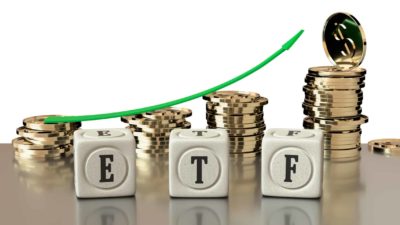Many investors, including professionals, are now starting to consider cryptocurrencies.
The 2 most well-known names in that world are Bitcoin (CRYPTO: BTC) and Ethereum (CRYPTO: ETH).
For a first-timer, which cryptocurrency do you invest in? Do they have different purposes? Do they gain or lose value in different ways?
The Motley Fool asked a couple of experts.
Aus Merchant co-founder Sean Tolkin told The Motley Fool there is a very easy way for traditional investors to make a distinction between the two cryptocurrencies.
"Bitcoin is to gold what Ethereum is to equities."
Bitcoin is gold
Tolkin, who is also the chief executive of the digital currency provider, said that Bitcoin's main purpose is to be a store of value.
"Bitcoin is sound money in a digital format. Bitcoin may be the world's greatest savings system and is open to anyone, without the need for any trusted intermediaries such as banks or lawyers."
Bitcoin has been programmed to eventually reach a limit of 21 million coins. Tolkin said that this scarcity holds up the value.
"This is in stark contrast to the traditional fiat monetary system that allows governments to inflate the monetary supply (to fund government debt), which in turn erodes the purchasing power of one's hard-earned savings."
Ethereum is shares
According to Tolkin, Ethereum — or more accurately, Ether — is "a complete paradigm shift from Bitcoin".
"While Bitcoin's mission is simply to be an effective store of value and immutable medium of exchange, Ethereum is a platform that facilitates a myriad of other businesses and applications."
Ethereum uses blockchain technology to facilitate "decentralised finance", or "defi" as it is known these days.
"Defi allows anyone with a smartphone to trade, lend, loan, become a market maker and much more," said Tolkin.
"The Ethereum blockchain has also enabled the creation of: play to earn games, supply chain management protocols, digital art curation (NFTs) and can theoretically facilitate an almost infinite amount of other applications."
So the value of Ether is more dependent on real-life activities and the usefulness of the technology.
"Many of these applications have cash flows and P/E earnings etc. that are familiar to anyone in the traditional finance space," Tolkin said.
"This parallel financial system is made possible by the smart contract functionality native to the Ethereum blockchain."
Why bother with either cryptocurrency (or any)?
According to Managing Director of Aus Merchant Investment Darren Abrams, the blockchain industry is already showing up how inefficient old-world database systems are.
"Finance and supply chain management are both primed for blockchain disruption," he said.
"However, we believe that the blockchains that best facilitate these decentralised financial applications will capture the majority of the digital asset market capital."
Abrams had a tip for those who wanted to start investing in cryptocurrency but didn't know where to start.
"There are two approaches I'd recommend. First, simply invest in… 'layer 1' blockchains (ie Bitcoin, Ether, Polkadot (CRYPTO: DOT), Solana (CRYPTO: SOL), Terra (CRYPTO: LUNA)) or find a professional fund manager in the space."
Aus Merchant is a cryptocurrency investment manager, so its founders obviously have an interest in investors seeking professional assistance.
But Abrams reckons either approach will work fine.
"Although we believe the former option will yield fantastic returns in the long run, the middleware and applications built on top of these blockchains have the potential to generate asymmetrical returns," he said.
"However, spotting the difference between a pets.com and an Amazon takes a discerning expert."








